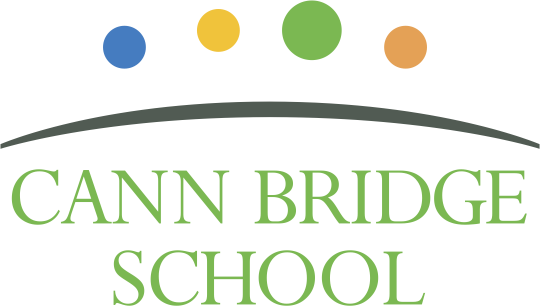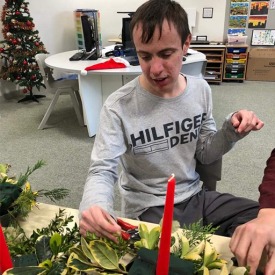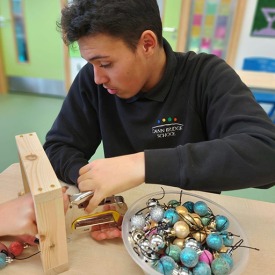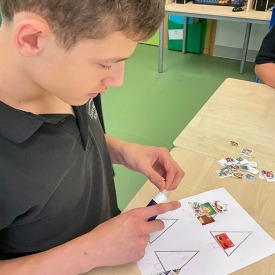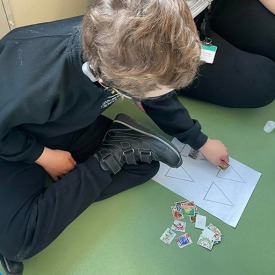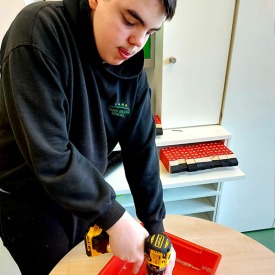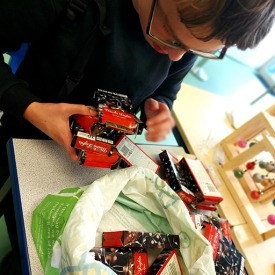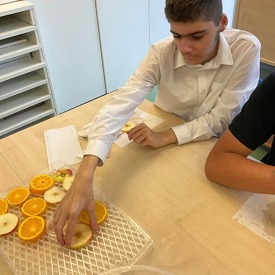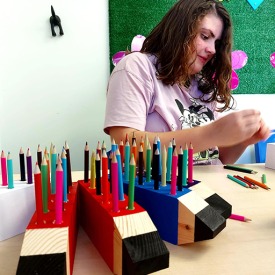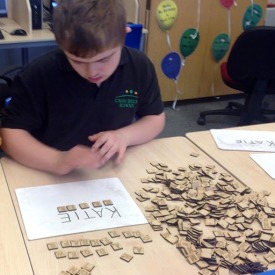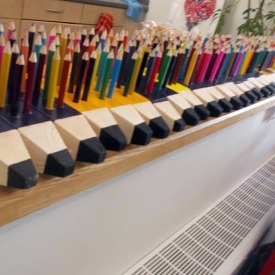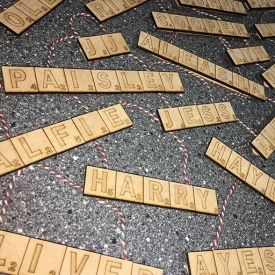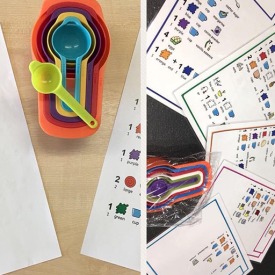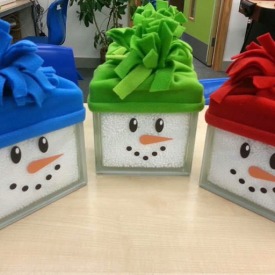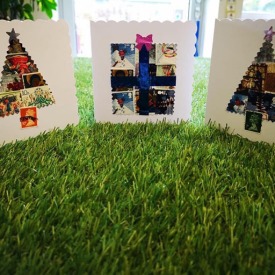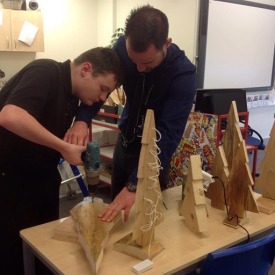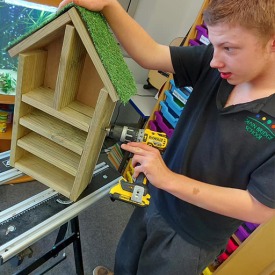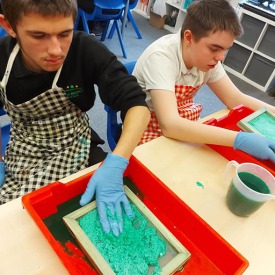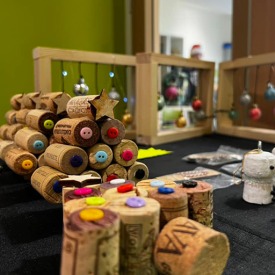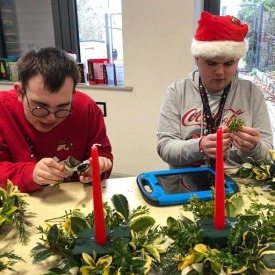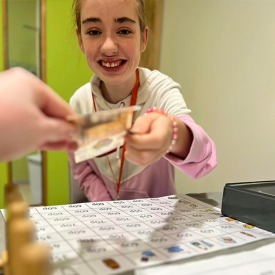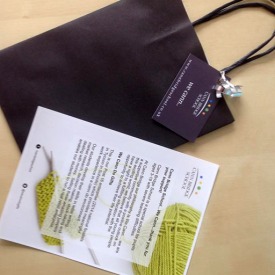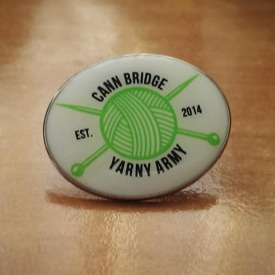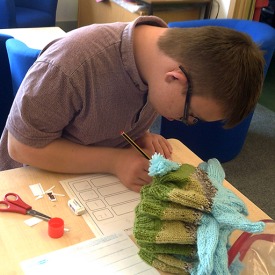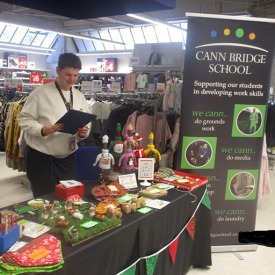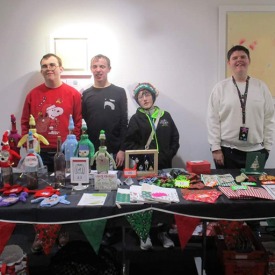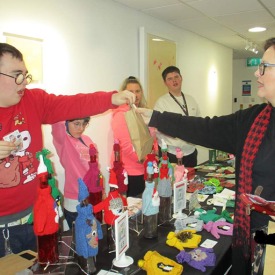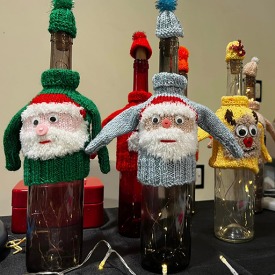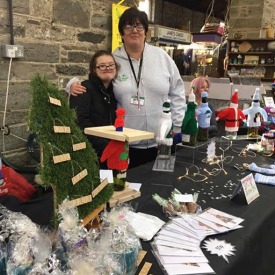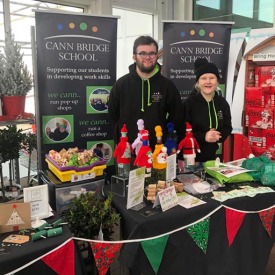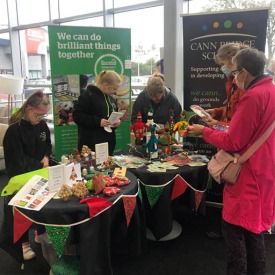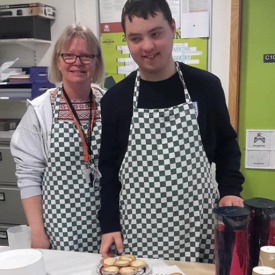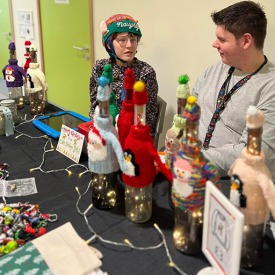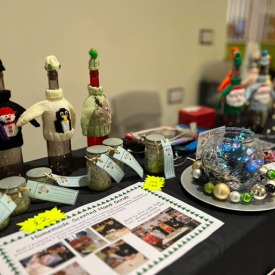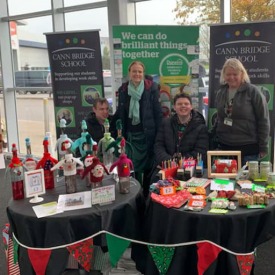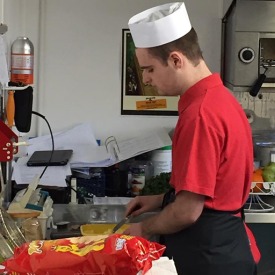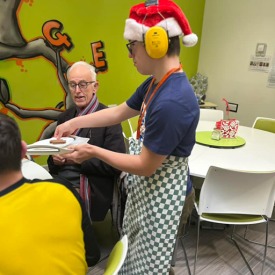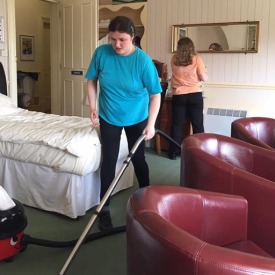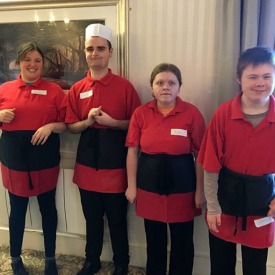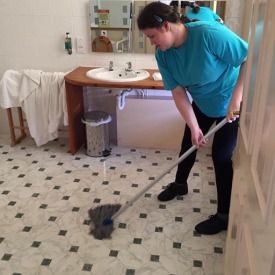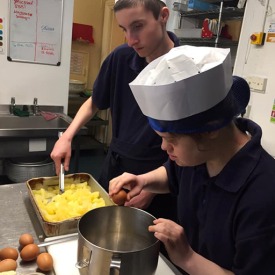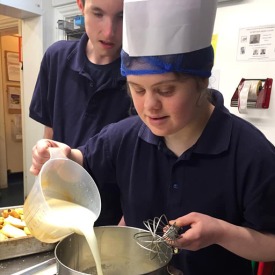The development of work related learning skills through enterprise is a key part of the Phase Three element of the Pathway to Independence curriculum for our students aged 14-19.
We have had huge success with the work we have done and, in the past few years have been winners and runners up in the 14-16 category of the national competition “Tycoon in Schools” , as organised by Peter Jones of Dragons Den fame. We have also been runners up in the 16-18 category of the same competition. All funds raised through our enterprise work go back into creating more opportunities for our students.
Enterprise skills are divided into three areas, retail, manufacturing and caring for others (including hospitality) and include the development of a number of functional skills, as well as increased independence in life skills when moving towards adult life. Pupils develop their understanding of budgeting and the cost of items.
Each year our students aged 14-16 make a range of products ready for sale. Consideration is given to strategies to support independence with tasks, as well as jobs that can be completed whatever level of learning disability a person may have. There is a focus on working as part of a team, taking responsibility, working to a standard, choice making in terms of voicing jobs a student may like to do and new challenges.
Goods are sold through order forms which incorporate data handling skills, money skills, literacy and numeracy skills. There is a focus on using different tools and making use the design and technology skills a student may have developed as they progress through the Pathway to Independence curriculum at Cann Bridge School.
Some goods are also passed to the 16-19 students in order for them to have goods to sell as part of work on understanding the retail sector.
Goods created include:
- Christmas cards using handmade paper (sensory opportunities during paper making, maths skills)
- Gift tags (fine motor skills, maths skills)
- Bug hotels (woodwork and use of power tools, understanding our environment)
- Dog bandanas (use of sewing machine)
- Wooden Christmas trees with lights (power tools and fine motor skills)
- Pencil holders ( art skills and woodwork skills)
- Wine glass holders (woodwork skills)
- Personalised Christmas decorations (phonics and literacy skills)
- Symbolled recipe cards and cookery kits ( literacy, maths, food technology skills)
- Christmas Eve bags (following a list to complete a task)
Retail skills are developed throughout the 14-19 curriculum. Students in the 14-16 age group run a weekly Bacon Bar, preparing and selling bacon rolls which are delivered to staff around the school. Skills developed include food hygiene, working as part of a team, speaking to people who are less familiar to you, recording and reading order forms to gain information, understanding money as a token and working as part of a team.
The students in Post Bridge College (16-19 provision) run a weekly Fish and Chip service for staff, building on the skills learned through Bacon Bar. They also run a weekly coffee shop for pupils across the school. Skill development includes, food hygiene, handling money, taking orders from larger groups of people, waiting at tables, dealing with customers etc.
In addition, students in our 16-19 provision run pop up shops selling goods made by post 16. They also work with people in the wider community to sell wine bottle jumpers in pop up shops around the city. Letters are written to volunteers who form the school’s Yarny Army and who are willing to knit jumpers for the school to sell. Students are responsible for letter writing, shopping for wool and the making of kits to send to volunteers. They use their data handling skills to sort jumpers for events. There is a focus on communication and dealing with people in the wider community that students don’t know. They also run an ebay shop where they practice literacy skills offering descriptions of the jumpers they sell. Parcels are wrapped to send goods and maths skills developed with an understanding of how parcel weight makes a difference to price at the post office.
There is a focus on the development of life skills throughout Phase Three of the Pathway to Independence curriculum which includes increased independence doing household jobs. Weekly lessons in the 14-16 classes lead to work experience opportunities off site in our post 16 provision. This includes opportunities to “clean” at Downham House and to take part in a residential work placement at Foxes Hotel in Minehead
